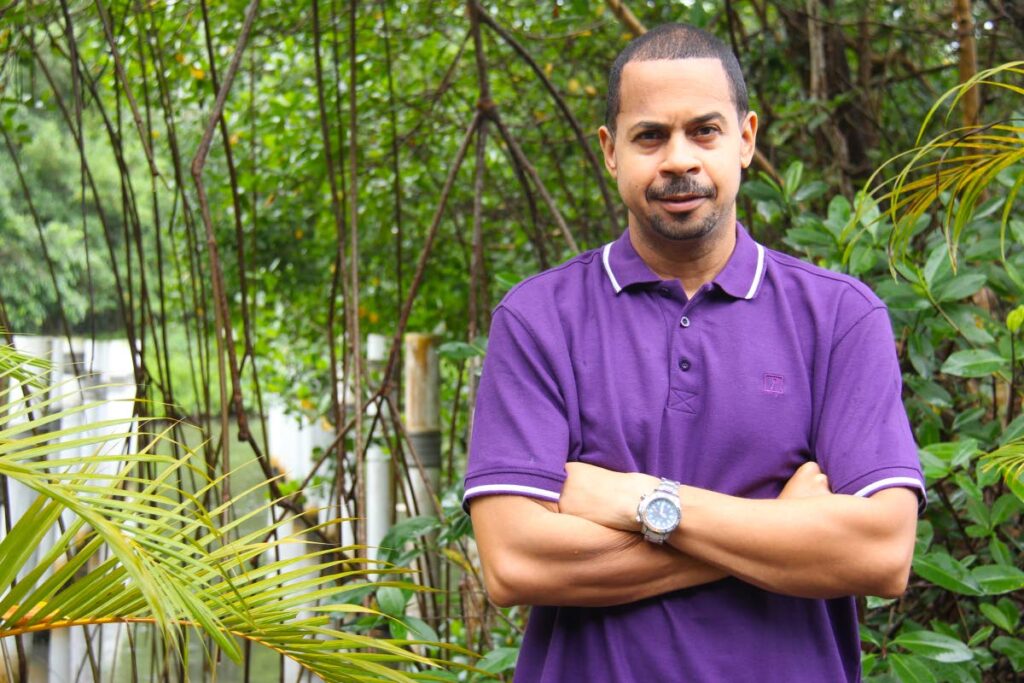Crime, politics and cluelessness

PAOLO KERNAHAN
FIVE hundred and nine; that was the murder toll at the time of this writing.
If you're looking for a clue to unravel this crime conundrum, you'll find it in our cluelessness.
As a knee-jerk reaction to blunt and damning newspaper editorials on the government's naked ineptitude, the PM hastily called together the National Security Council – a gathering of the most feeble minds on offer; the same characters who presided over unprecedented failure and decline of this nation for the past seven years.
In this time of bewildering, terrifying crisis, the government assembled...the government, to take on the grim metastasis of criminality.
This was all about the myopia of optics; we've been here before. Murders spike, the acting commissioner trots out some vacuous platitude from his inexhaustible reserves of tripe. It makes you pine for the days of former CoP Stephen Williams and his chaplet.
And so it goes – government ministers feign concern, announce half-a--ed measures, slam the Opposition, public agitation wanes; rinse and repeat fire.
We should be grateful the PM took time out of his hectic schedule of leisure and avoidance to pantomime some flimsy pretence at dynamism. Previously, the most energetic we've seen Dr Rowley on matters related to national security was his enthusiastic involvement in events culminating in the ignominious departure of former CoP Gary Griffith.
With everything at our throats, the only sight more frightening than CCTV home-invasion footage was choreographed press coverage of Imbert, Rowley, Hinds, Young and Marvin Gonzales (because why the hell not), and assorted seat-fillers blankly leafing through documents.
Our inability to get violent crime under control is easy to diagnose.
The markers of failure stick out in almost every sphere of national life: an unserviceable education system, deplorable health care, economic stagnation, crumbling infrastructure, etc.
The crux, people, is the lack of problem-solving skills and strategic thinking to put together a serious counteroffensive to rising crime. These are the traits a government needs in order to get its arms around our complex problems.
In governance we don't build problem-solving competencies, nor do we encourage a strategic approach to our challenges. Individuals who are so inclined are either sidelined or frustrated by the groaning, lumbering apparatus of government programmed exclusively to serve politics, not the people.
The major players in this capitulation to criminals are clueless. Their ignorance, fortified by political arrogance, makes the government susceptible to idiotic whisperings from equally clueless advisers and contract-anglers.
Leadership never had to develop that problem-solving, analytical muscle because there was always enough money to throw at our headaches – like a pole dancer. The Ministry of National Security has traditionally attracted a heaping share of budgetary allocations; yet here we are.
Apart from the obvious cluelessness, we're expected to look to politicians to solve a problem created, in part, by politics.
Citizens have to keep swallowing nonsense about anti-gang legislation while political parties actively court gang leaders masquerading as community organisers to bring home votes.
Governments funnel massive contracts to marginalised communities to completely unqualified individuals, enriching those with ties to criminal elements.
This in turn gives criminals the purchasing power to expand their activities, sparking rivalries with other gangs tussling for territory.
Still, the government takes the easy route of more officers, more resources and reflex army/police joint patrols – from Operation Anaconda to Operation Crapaud.
Folks able to think for themselves know the problem isn't manpower or insufficiency of sirens. Rudderless management is an overarching feature of the glaring absence of any strategic approach to fighting crime.
Additionally, unless there's a co-ordinated attack that encompasses social issues, poor education, economic disparities, community despair, on-the-block youths with no options but gang fealty, a dysfunctional judiciary and prison reform – then the bloodshed will continue.
We need actual experts to work as a team (a council, even!) to stitch together government ministries, agencies and civil-society groups. The problem demands social workers, sociologists, management advisers, criminologists, logisticians and community activists.
This war has to be fought on several fronts: crime prevention and interdiction through intelligence-gathering, swift justice, a path to redemption for young offenders and ex-prisoners, and opportunities for citizens to achieve their true potential in society.
Such work takes a huge intellectual effort, so forget it.
It's better to feed the public images of people who are part of the problem making noises about "solutions" – proven failures too blind to learn from their mistakes, but adept at repeating them.

Comments
"Crime, politics and cluelessness"